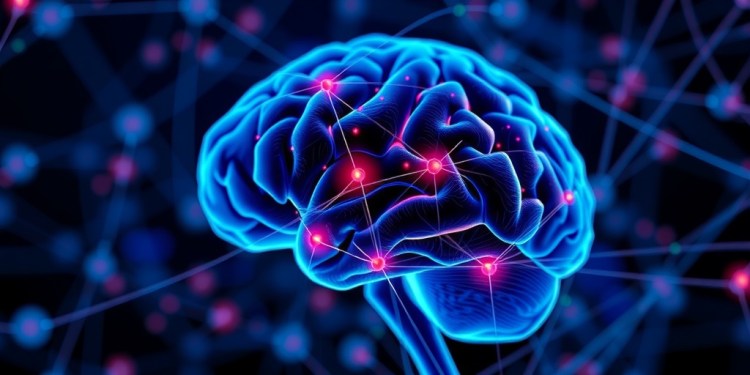
Recent advancements in medical imaging technology have provided valuable insights into the subtle yet significant impacts of chemotherapy on the brain’s connectivity, particularly in patients diagnosed with breast cancer. A new study published in the esteemed Journal of Magnetic Resonance Imaging has exposed critical alterations in brain connectivity patterns during the course of chemotherapy, raising essential questions about the cognitive wellbeing of cancer patients undergoing treatment. This groundbreaking research highlights not only the physical toll of chemotherapy but also its potential neurological consequences, which could manifest as cognitive dysfunction and altered memory processing capabilities.
The study meticulously analyzed the brain activity of 55 breast cancer patients receiving chemotherapy, comparing their scans to those of 38 healthy control participants over several months. Utilizing functional magnetic resonance imaging (fMRI)—a non-invasive technique that measures brain activity by detecting changes in blood flow—the researchers were able to map changes in brain connectivity with remarkable precision. The longitudinal nature of the study allowed for the observation of how brain connectivity evolved, or in some cases deteriorated, as treatment progressed, thus providing a dynamic view of the effects of chemotherapy on the human brain.
Notably, scans of the patients revealed pronounced changes in connectivity within two critical brain regions: the frontal-limbic system and the cerebellar cortex. The frontal-limbic system plays a crucial role in executive functions, which include decision-making, emotional regulation, and complex cognitive tasks. Meanwhile, the cerebellar cortex is primarily associated with memory and learning. The deterioration observed in these areas throughout the treatment cycle suggests a direct correlation between chemotherapy and cognitive impairments, often collectively referred to as “chemo brain” in patient communities.
The authors of the study underscored the urgency of their findings by emphasizing that these changes in brain function were not only rapid but also progressive. They noted that as chemotherapy continued, the disruptions in connectivity intensified and extended beyond initial observation, potentially indicating a growing cognitive burden on the patients. This cumulative effect of disrupted brain function could have far-reaching implications, not only for the quality of life experienced by breast cancer survivors but also for their long-term cognitive health.
As awareness of cognitive side effects linked to cancer treatments becomes increasingly prominent, the research findings represent a critical step toward understanding the mechanisms behind these changes. The implications are significant, particularly as healthcare professionals strive to develop patient-centered care strategies that mitigate the adverse effects of treatment on brain function. These insights may prompt further investigations into targeted interventions that could help preserve cognitive abilities during and after chemotherapy.
The findings also challenge the longstanding assumption that physical treatment efficacy should be prioritized over the cognitive and psychological impact of cancer therapies on patients. Emphasizing a holistic approach to cancer treatment, the researchers advocate for the integration of cognitive health assessments alongside physical health evaluations in oncology settings. By acknowledging the intertwined nature of physical treatment effects and cognitive outcomes, healthcare providers may enhance the overall treatment experience for patients.
Moreover, understanding the relationship between chemotherapy and brain connectivity could pave the way for future research into neuroprotective strategies that might buffer against the cognitive side effects of treatment. This opens the door for further studies that could explore pharmacological and psychosocial interventions aimed at minimizing cognitive deficits, thereby empowering patients and improving their quality of life during and after cancer therapies.
As researchers continue to investigate the complex interactions between chemotherapy and brain function, the findings presented in this study serve as a timely reminder of the need for ongoing dialogue among clinicians, researchers, and patients. By fostering collaboration and communication between these groups, we can cultivate an environment that prioritizes both the physical and mental health of cancer patients, ensuring that their treatment journey is as supportive and effective as possible.
In summary, the implications of altered brain connectivity due to chemotherapy in breast cancer patients are profound and multifaceted. As we forge ahead in the battle against cancer, studies like this illuminate the dual challenges cancer patients face, not only in overcoming the disease itself but also in navigating the cognitive aftermath of treatment. Future research must build upon these findings to further unravel the complex interplay between cancer therapies and brain health, ultimately enriching our understanding of patient care in oncology.
The exploration of these connections not only holds promise for current patients but also establishes a foundation upon which future research can expand, laying the groundwork for more comprehensive treatment approaches that consider both the physical challenges of cancer and its cognitive repercussions in the lives of those affected.
Subject of Research: Neurocognitive effects of chemotherapy in breast cancer patients
Article Title: Altered brain functional networks in patients with breast cancer after different cycles of neoadjuvant chemotherapy
News Publication Date: 9-Apr-2025
Web References: https://onlinelibrary.wiley.com/journal/15222586
References: http://dx.doi.org/10.1002/jmri.29772
Image Credits: [Not provided]
Keywords: Breast cancer, chemotherapy, cognitive function, functional magnetic resonance imaging, brain connectivity, neurocognitive effects, cancer treatment.
Tags: advancements in medical imaging technologyalterations in memory processing in cancer patientsbrain connectivity changes during cancer treatmentbreast cancer patient brain imagingcancer treatment effects on brain connectivitychemotherapy and cognitive dysfunctioncognitive wellbeing in cancer survivorsexamining brain activity in breast cancer patientsfunctional magnetic resonance imaging in oncologyimpacts of chemotherapy on mental healthlongitudinal study of brain activity in chemotherapyneurological consequences of chemotherapy





